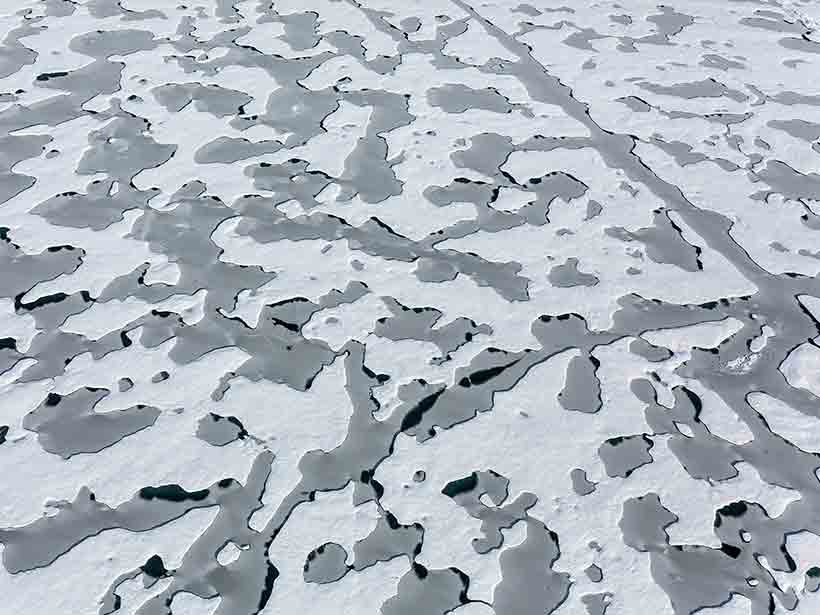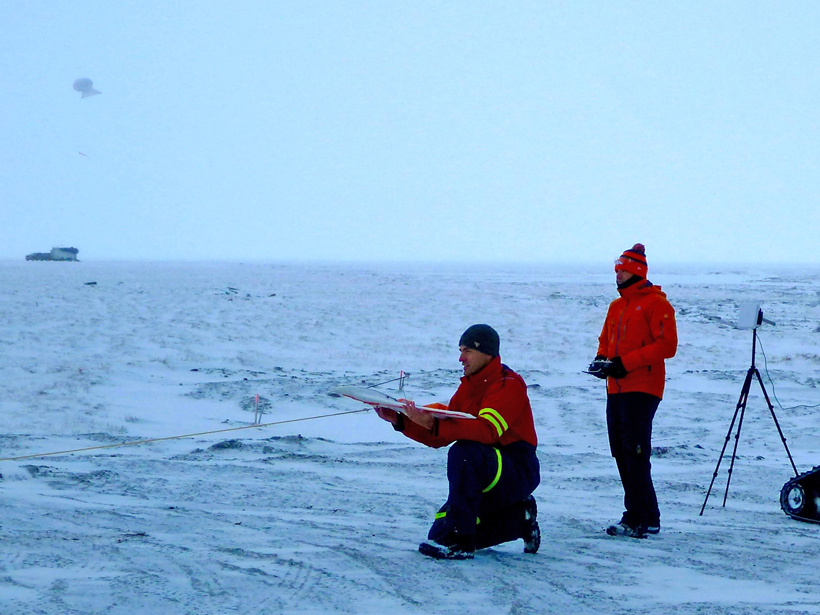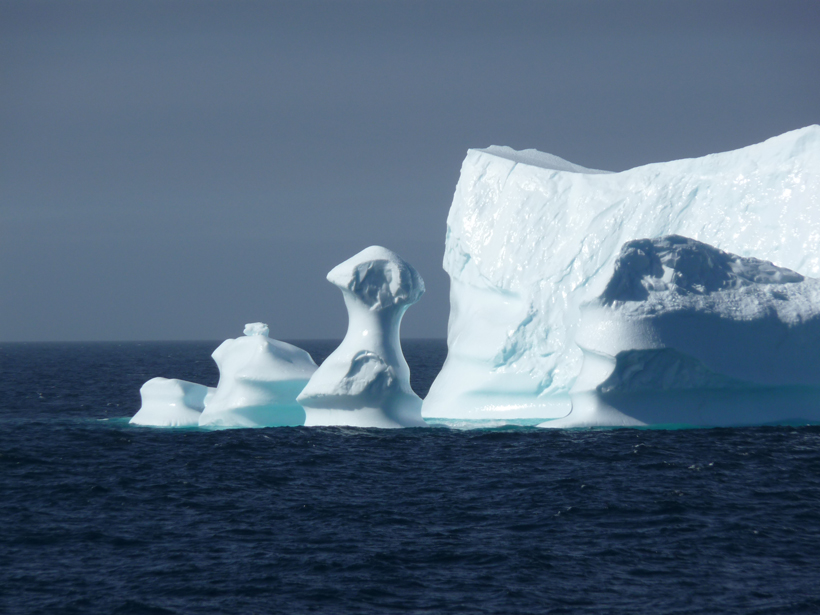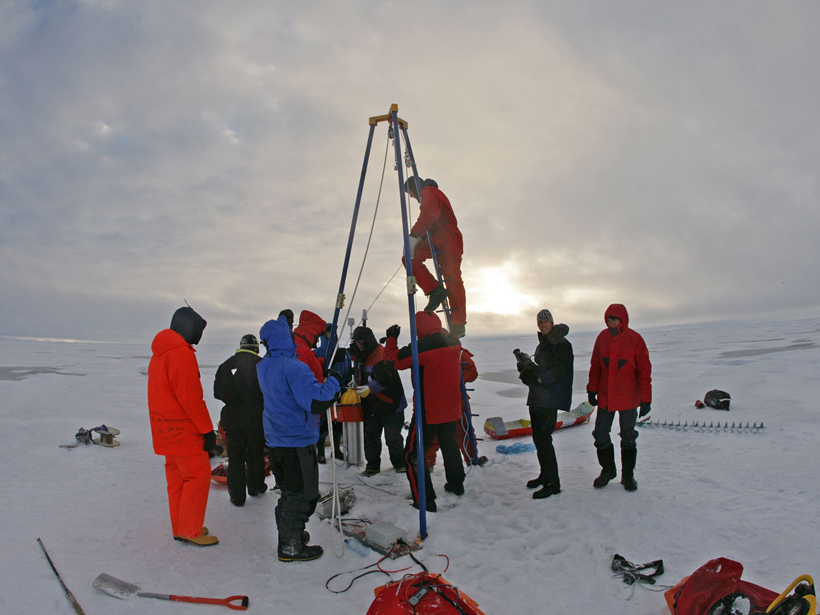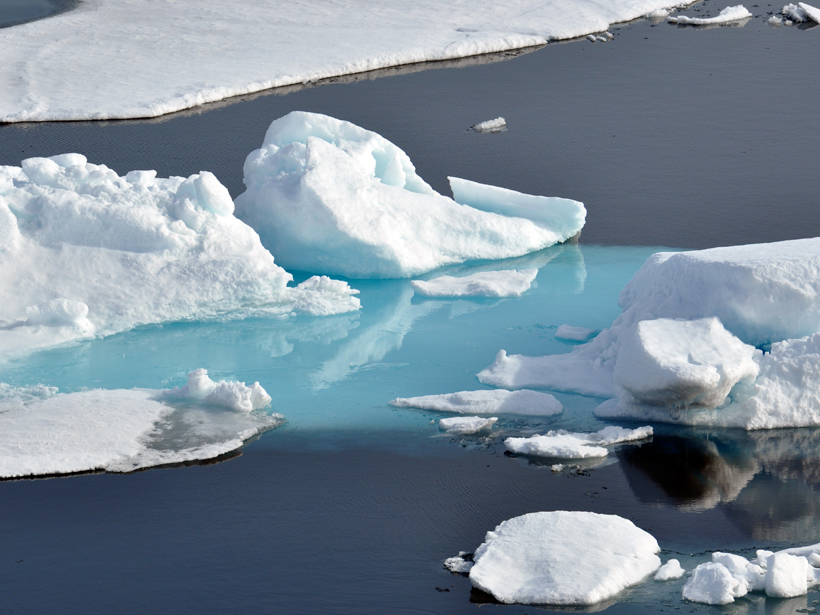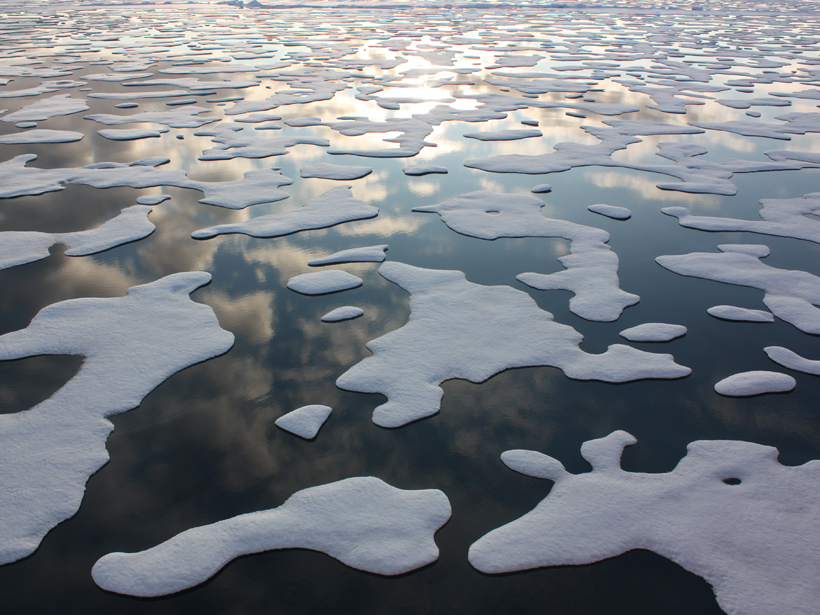Satellite data, field measurements, and readings from "snow buoys" reveal ice thickness patterns similar to those preceding the lowest recorded sea ice extent, which was reached nearly 4 years ago.
Arctic
Upcoming Arctic Summit to Include Focus on Climate Change
U.S. initiatives aim to protect the marine environment and address climate change in the Arctic, U.S. ambassador says.
Unmanned Platforms Monitor the Arctic Atmosphere
In the Arctic, drones and tethered balloons can make crucial atmospheric measurements to provide a unique perspective on an environment particularly vulnerable to climate change.
Detecting Black Carbon in the Arctic Atmosphere
Measurements of light-absorbing carbon particles made during an Arctic research expedition could improve understanding of their effects on the Arctic climate.
Building New Ways to Think About Arctic Freshwater
A new literature review summarizes the complex role of freshwater in the Arctic and its impact on climate and biogeochemical systems as a whole.
Climate Models Predict Diverse Arctic Ocean Shipping Routes
As ice melts, multiple models yield more detailed route predictions than any single model alone.
Arctic States Nearing Science Cooperation Pact
Negotiations are focusing on removing obstacles to conducting research rather than on setting international scientific priorities. Research priorities among Arctic nations already overlap considerably, according to a U.S. negotiator.
Arctic Tides Drive Water Mixing and Sea Ice Loss
Researchers model ice-ocean interaction to study how tides can influence Arctic Ocean circulation and sea ice volume.
Vanishing Sea Ice Could Trigger More Arctic Precipitation
A promising method for evaluating Arctic precipitation predicts retreating sea ice will increase snow and rainfall in the Arctic and counteract some of global climate change's effects regionally.
Sounding the Northern Seas
A new compilation of underwater terrain provides the most up-to-date mapping of portions of the western Arctic and North Pacific.

